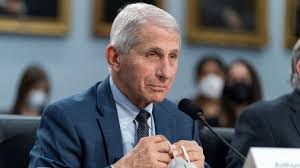Who is Fauci Pardon?
The term “Fauci pardon” refers to the preemptive pardon issued by President Joe Biden on January 20, 2025, to Dr. Anthony Fauci, the former Director of the National Institute of Allergy and Infectious Diseases (NIAID). This action was taken in anticipation of potential legal challenges or investigations that could arise from the incoming administration. The pardon aimed to protect Dr. Fauci from any future prosecution related to his tenure in public service.
Early Life and Education
Dr. Anthony Stephen Fauci was born on December 24, 1940, in Brooklyn, New York, to Stephen A. Fauci, a pharmacist, and Eugenia A. Fauci (née Abys), a teacher. Growing up in the vibrant borough of Brooklyn, Fauci was exposed to a hardworking family environment that emphasized the value of education. His parents were of Italian descent, and both had careers in public service, a fact that undoubtedly shaped his future path.
Fauci attended The College of the Holy Cross in Worcester, Massachusetts, where he earned a Bachelor of Science in Arts and Sciences in 1962. His college years were marked by his academic excellence and a developing interest in science, particularly in the biological and medical fields. Fauci’s affinity for research and medicine was evident early on.
In 1966, he graduated cum laude with a Doctor of Medicine (M.D.) degree from Cornell University Medical College in New York City. His education at Cornell provided him with a solid foundation in medical science, and it was here that his commitment to immunology and public health began to take shape. Fauci’s passion for scientific discovery and medicine would eventually lead him to a distinguished career in immunology and infectious disease research.
Personal Life
Dr. Fauci is married to Christine Grady, a bioethicist who has worked as the Chief of the Department of Bioethics at the National Institutes of Health (NIH) Clinical Center. Christine, an accomplished nurse and scholar, has supported Fauci both professionally and personally throughout his remarkable career. The couple has three daughters together.

Dr. Fauci and Christine are known to be a private couple, with their shared professional commitment to public health being a central element of their personal lives. Fauci’s commitment to his work is legendary, but his family has always played an important role in his grounding and support. The couple resides in the Washington, D.C. area.
Family Background
Dr. Fauci’s family has deep roots in Brooklyn, New York, where his father worked as a pharmacist and his mother as a schoolteacher. Their careers in the public service sector influenced Fauci greatly, as they instilled in him the values of hard work, discipline, and community service. His family environment nurtured a sense of duty to help others, which later defined his career in medicine and public health.
Fauci’s early life experiences were also marked by a strong Italian heritage. While his family remained supportive and close-knit, his decision to pursue a career in medicine was his own. His determination to become a doctor was evident from a young age, and his achievements have brought immense pride to his family.
Detailed Bio Table
| Attribute | Details |
|---|---|
| Full Name | Dr. Anthony Stephen Fauci |
| Date of Birth | December 24, 1940 |
| Place of Birth | Brooklyn, New York, USA |
| Education | B.S. in Arts and Sciences from College of the Holy Cross (1962) |
| M.D. from Cornell University Medical College (1966) | |
| Profession | Immunologist, Director of NIAID (1984–2022) |
| Height | Approximately 5 feet 7 inches (170 cm) |
| Parents’ Names | Stephen A. Fauci and Eugenia A. Fauci (née Abys) |
| Net Worth (2024) | Estimated at $10 million |
Career
Dr. Anthony Fauci’s career in medicine began shortly after he completed his M.D. at Cornell. In 1968, he began his medical career at the National Institutes of Health (NIH) in Bethesda, Maryland, where he worked as a clinical associate in the National Institute of Allergy and Infectious Diseases (NIAID). Fauci’s work at NIH marked the beginning of a career that would span decades and redefine the landscape of public health in the United States and globally.
In 1984, Dr. Fauci became the Director of NIAID, a position he held until his retirement in 2022. His role at the helm of NIAID was a pivotal one, especially during the HIV/AIDS epidemic in the 1980s and 1990s. Fauci played a critical role in advancing HIV/AIDS research, working to develop treatments and improve public awareness about the disease. His leadership in the global fight against the epidemic earned him widespread recognition.
Dr. Fauci’s career reached new heights during the Ebola crisis of 2014 and, most notably, during the COVID-19 pandemic starting in 2019. As Chief Medical Advisor to President Donald Trump and later President Joe Biden, Fauci became a central figure in the U.S. government’s response to the pandemic. His expertise in infectious diseases, including viruses, and his clear, evidence-based communication style made him a trusted authority during a time of global uncertainty.
His role in the COVID-19 response involved overseeing the development of vaccines and treatments, advising the President, and helping shape public health policy. He frequently briefed the American public on the virus’s evolving situation and was a vocal advocate for vaccinations and mask-wearing to mitigate the virus’s spread.
In 2022, after more than five decades of dedicated service, Fauci announced his retirement from his position as the Director of NIAID, although he vowed to continue to contribute to global health in other ways.
Fauci’s career has been characterized by his relentless commitment to advancing scientific research, improving public health, and fighting infectious diseases. He has been recognized with numerous honors, including the Presidential Medal of Freedom, one of the nation’s highest civilian honors.
Latest News
On January 20, 2025, President Joe Biden issued a preemptive pardon to Dr. Anthony Fauci, along with retired General Mark Milley and members of the House committee that investigated the January 6 attack on the Capitol. This unprecedented move was intended to protect these individuals from potential “revenge” by the incoming Trump administration, which had previously threatened retribution against those who opposed or investigated former President Donald Trump. The pardons were issued in the final hours of President Biden’s term and were not acknowledgments of wrongdoing.
Height and Physical Appearance
Dr. Anthony Fauci stands approximately 5 feet 7 inches (170 cm) tall. He is known for his distinctive appearance, characterized by his short, white hair and glasses. Throughout his career, he has been recognized for his professional demeanor and commitment to public health.
Social Media Accounts Table
| Platform | Username | Official Link |
|---|---|---|
| @NIAIDNews | https://twitter.com/NIAIDNews | |
| NIAID | https://www.facebook.com/NIAID | |
| @niaidnews | https://www.instagram.com/niaidnews |
Net Worth as of 2024
As of 2024, Dr. Anthony Fauci’s net worth is estimated to be around $10 million. This wealth has been accumulated through his long-standing career in public service, including his tenure as Director of NIAID and his role as Chief Medical Advisor to the President. His financial standing reflects his prominence in the medical and scientific communities.
FAQS
What people did Trump pardon?
During his presidency, Donald Trump issued several high-profile pardons. Some of the notable individuals he pardoned include:
- Roger Stone: A longtime political associate and advisor to Trump, Stone was convicted of lying to Congress and obstruction related to the Russia investigation.
- Michael Flynn: Trump pardoned his former national security advisor, who had pleaded guilty to lying to the FBI about his contacts with Russian officials.
- Paul Manafort: Trump’s former campaign chairman was pardoned after being convicted for crimes related to the Russia probe, including tax and bank fraud.
- Charles Kushner: The father of Trump’s son-in-law, Jared Kushner, was pardoned after serving a prison sentence for tax evasion, witness tampering, and illegal campaign contributions.
- Alice Johnson: A criminal justice reform advocate who had been serving a life sentence for a first-time drug offense was pardoned in a high-profile case championed by Kim Kardashian West.
These pardons were part of a broader effort by Trump to grant clemency to individuals, especially those he believed had been unfairly prosecuted or whose cases were politically motivated.
Why is there a presidential pardon?
A presidential pardon is a legal act that grants forgiveness to individuals convicted of federal crimes, removing their punishments or convictions. Pardons are issued to uphold justice, correct miscarriages of justice, and offer a form of clemency in certain situations. Some reasons a president might issue a pardon include:
- Mistaken conviction: When a person has been wrongfully convicted or sentenced unfairly.
- Show of mercy: As a gesture of compassion, particularly in cases where individuals have served long sentences for non-violent crimes.
- Political considerations: Sometimes pardons are issued to reduce political tensions, as with cases of controversial figures or those linked to political events.
The power of the pardon is enshrined in the U.S. Constitution (Article II, Section 2) and is granted to the president to ensure fairness and mercy in the legal system.
Who issues the pardon?
A presidential pardon is issued by the President of the United States. The U.S. Constitution grants the president the exclusive power to pardon individuals convicted of federal crimes, except in cases of impeachment. This authority allows the president to grant clemency, commute sentences, or offer other forms of relief to individuals who have been sentenced for federal offenses.
The process typically involves an application for clemency, which is reviewed by the Department of Justice’s Office of the Pardon Attorney, although the final decision rests with the president. While the president has wide discretion in issuing pardons, they are often issued after careful review of the individual’s case, the nature of their offense, and the circumstances surrounding their conviction.




